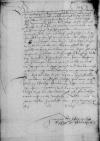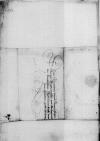Dieweil der Provincial Diet of Royal Prussia ⌊tagProvincial Diet of Royal Prussia ⌋ unnsers zuesamnekom(m)ens uff s(ancti) Michaelis[1] ghen Graudenz (Grudziądz, Graudentium), city in Poland, Voivodeship of Pomerania, on the upper east bank of the Vistula, Graudenz (taking turns with Marienburg (Malbork)) was the venue for the Provincial Diet of Royal Prussia, which were chaired by the bishop of Ermland (Warmia)⌊GraudentzGraudenz (Grudziądz, Graudentium), city in Poland, Voivodeship of Pomerania, on the upper east bank of the Vistula, Graudenz (taking turns with Marienburg (Malbork)) was the venue for the Provincial Diet of Royal Prussia, which were chaired by the bishop of Ermland (Warmia)⌋ vorhannden / und wir durch etliche der vornembst(en) hernn Council of Royal Prussia the most important local authority in Royal Prussia. It consisted of two bishops (of Ermland (Warmia), who served as the Council’s president, and of Kulm (Chełmno)), three voivodes (of Kulm, Marienburg (Malbork), and Pomerania), three castellans (of Kulm, Elbing (Elbląg), and Gdańsk (Danzig)), three chamberlains (of Kulm, Marienburg, and Pomerania), and representatives of the three Great Prussian Cities – Gdańsk, Thorn (Toruń), and Elbing (ACHREMCZYK 2016, p. 17-18)⌊ko(nigliche)n rethe dieser lanndeCouncil of Royal Prussia the most important local authority in Royal Prussia. It consisted of two bishops (of Ermland (Warmia), who served as the Council’s president, and of Kulm (Chełmno)), three voivodes (of Kulm, Marienburg (Malbork), and Pomerania), three castellans (of Kulm, Elbing (Elbląg), and Gdańsk (Danzig)), three chamberlains (of Kulm, Marienburg, and Pomerania), and representatives of the three Great Prussian Cities – Gdańsk, Thorn (Toruń), and Elbing (ACHREMCZYK 2016, p. 17-18)⌋ ersucht / unnd erinnert werden, / wie mit der ein genhomen czeise diss jhar gefallenn, / damit sie in gewisse stelle dem Royal Prussia (Prussia Regalis), region, part of Prussia annexed to the Kingdom of Poland in 1466 under the provisions of the Second Peace of Thorn⌊landeRoyal Prussia (Prussia Regalis), region, part of Prussia annexed to the Kingdom of Poland in 1466 under the provisions of the Second Peace of Thorn⌋ zu guth gelegt unnd gehanndelt wurde, / ist unnser bedenncken, / solchs auch E(wer) Erbarkeit written over H(erlichkei)t⌈H(erlichkei)t E(rbarkei)t Erbarkeit written over H(erlichkei)t⌉ anzuzeigen, / das die in ihrer statt amptern / dorann wolde sein, / rechennschaft der izct gefallenen zeise / unnd derer, die vor dieser ist eingenhomen, / zufurdern und uf nechst zukunftig(en) landts tag dieselbten rechenschaft denn hernn rethenn einczubrengen, / damit gewust wurde, wieviel der vorigen unnd itzigen gewest / und das dem nochgekomen macht werden, / welche von Royal Prussian Estates ⌊gemeinen stenden diss landtsRoyal Prussian Estates ⌋ / dieser letztenn zeise halben ist wurdenn beschlossen. / Solchs hab wir E(wer) E(rbarkei)t, die wir gotlichen gnaden bevelhen, / aus anderer Council of Royal Prussia the most important local authority in Royal Prussia. It consisted of two bishops (of Ermland (Warmia), who served as the Council’s president, and of Kulm (Chełmno)), three voivodes (of Kulm, Marienburg (Malbork), and Pomerania), three castellans (of Kulm, Elbing (Elbląg), and Gdańsk (Danzig)), three chamberlains (of Kulm, Marienburg, and Pomerania), and representatives of the three Great Prussian Cities – Gdańsk, Thorn (Toruń), and Elbing (ACHREMCZYK 2016, p. 17-18)⌊hernnCouncil of Royal Prussia the most important local authority in Royal Prussia. It consisted of two bishops (of Ermland (Warmia), who served as the Council’s president, and of Kulm (Chełmno)), three voivodes (of Kulm, Marienburg (Malbork), and Pomerania), three castellans (of Kulm, Elbing (Elbląg), and Gdańsk (Danzig)), three chamberlains (of Kulm, Marienburg, and Pomerania), and representatives of the three Great Prussian Cities – Gdańsk, Thorn (Toruń), and Elbing (ACHREMCZYK 2016, p. 17-18)⌋ angebenn / und das es gemeinem nucze Royal Prussia (Prussia Regalis), region, part of Prussia annexed to the Kingdom of Poland in 1466 under the provisions of the Second Peace of Thorn⌊diss lanndtsRoyal Prussia (Prussia Regalis), region, part of Prussia annexed to the Kingdom of Poland in 1466 under the provisions of the Second Peace of Thorn⌋ notturti(?)fft ist, / freuntlicher weis nicht wolt(en) vorhalt(en).


 APG 300, 53, 268, p. 174
APG 300, 53, 268, p. 174